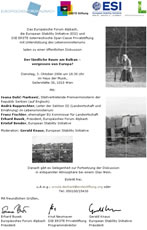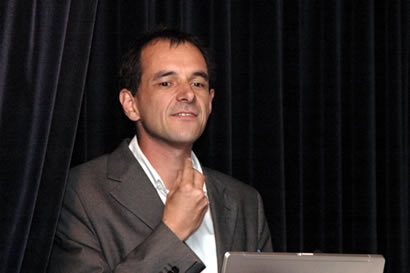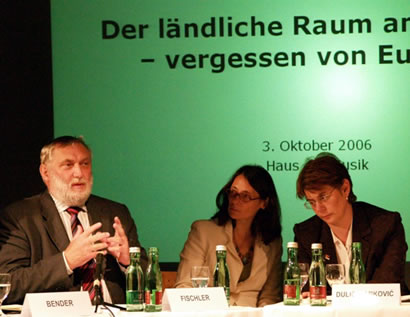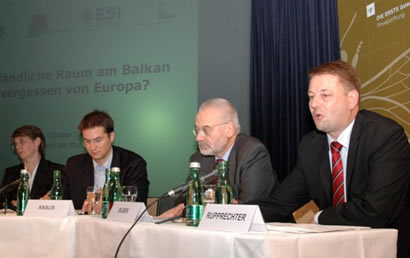Presentation in Vienna on the forgotten Countryside in the Balkans
Together with the Europäisches Forum Alpbach, the Austrian foundation DIE ERSTE österreichische Spar-Casse Privatstiftung, and the Austrian Ministry of Agriculture, ESI organized a presentation on "The forgotten Countryside. Rural poverty and development in the Balkans" (Der ländliche Raum am Balkan – vergessen von Europa?) in Vienna on 3 October.

The countryside across much of the Western Balkans has suffered a devastating process of economic and social decline. One of the main reasons for this process has been the rapid de-industrialisation across Ex-Yugoslavia after the dissolution of the common state.
With inadequate land plots, little mechanisation, poor infrastructure and little or no government support, many rural families have been forced back into lives of subsistence agriculture. It is as though the clock has been turned back by half a century.
ESI Senior Analyst Kristof Bender argued in his presentation that the quest of the Western Balkan countryside deserves much closer attention. He outlined four main issues:
- Agriculture and rural development is of crucial important in the Western Balkans: In most Western Balkan countries at least half of the population live in rural areas and except for Croatia, a very high proportion of the labour force of all Western Balkan countries is engaged in agriculture, ranging from 16 percent in Macedonia to 42 percent in Albania.
- The Western Balkan countryside is in deep crisis: The widespread demise of former socialist agro-combines combined with the poor state of private farms, little investment and few employment prospects led to a strong deterioration of the situation in rural areas. Addressing these problems is a basic precondition for stability and development in the region, particularly in Kosovo and Western Macedonia.
- The plight of the Western Balkan countryside is currently widely ignored: In most of the countries, there is a vacuum of effective policies for agriculture and rural development. In Kosovo, most affected by this problem, annual per capita spending on agriculture and rural development amounts to less than 2 Euro. This critical area has also been largely neglected by the international community.
- More could be done in order to address this problem: The EU has developed successful models to address the problems of backward rural areas and has applied these experiences also in the last wave of accession. These experiences could easily be transferred to the Western Balkans.
The discussion was attended by more than 70 participants, including Kristof Bender (ESI Senior Analyst), Ivana Dulić-Marković (Deputy Prime Minister of the Republic of Serbia), Andrä Rupprechter (Director of the department for agriculture and food in the Austrian Ministry of Agriculture), Franz Fischler (former EU Commissioner for Agriculture), Erhard Busek, (President of the Europäisches Forum Alpbach) and Gerald Knaus as moderator (ESI President).
Reaction: Die Presse, Martin Kugler "Balkan: Landbevölkerung verarmt" (5 October 2006)



